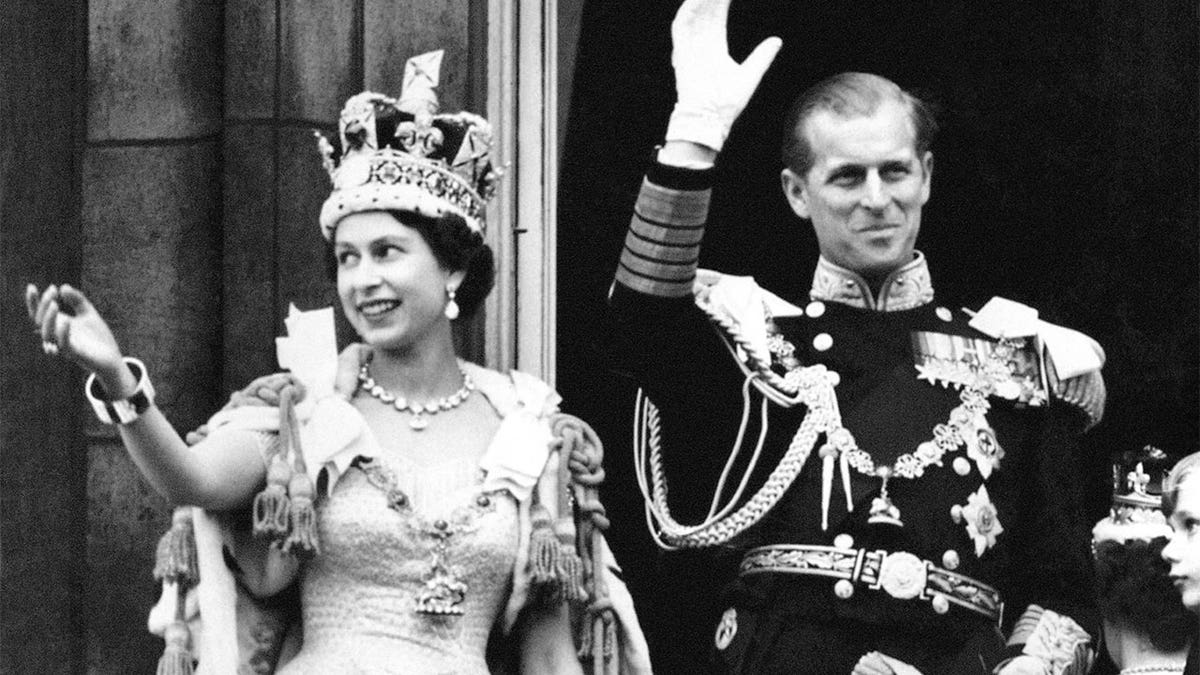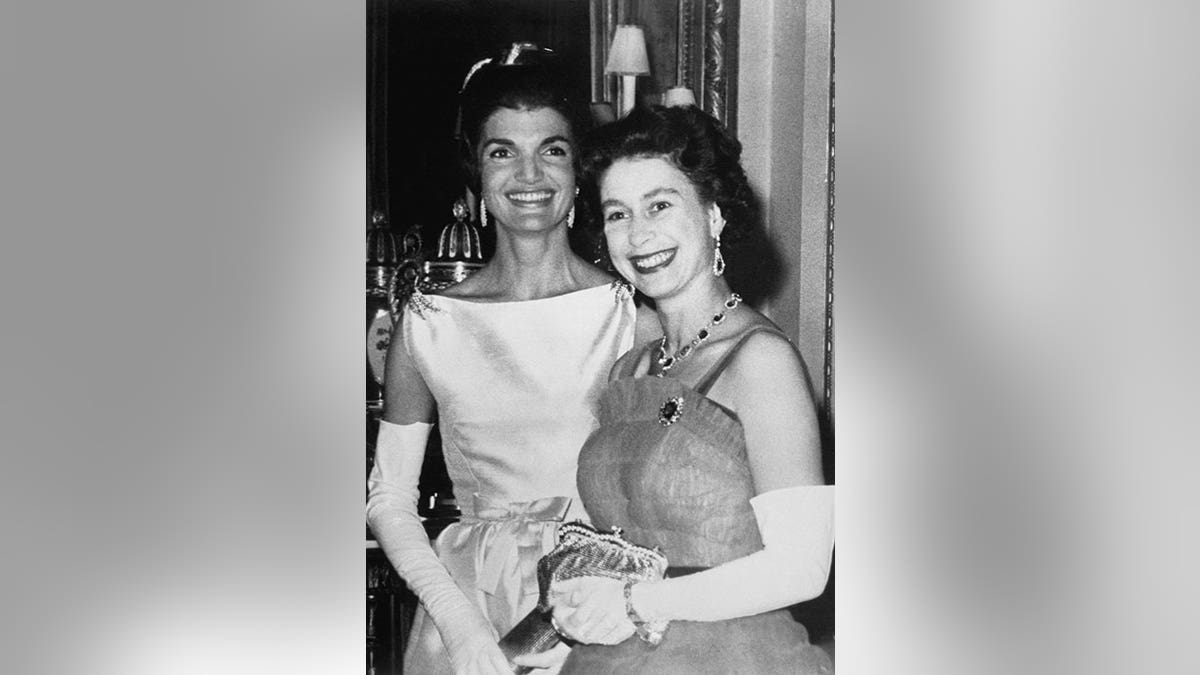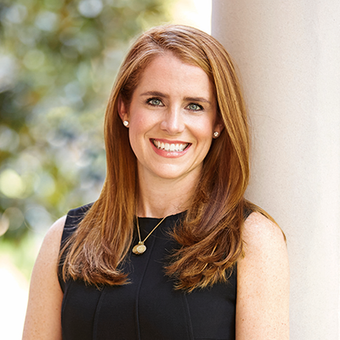Americans pay tribute to Queen Elizabeth at British Embassy
British Amb. to the U.S. Dame Karen Pierce says an 'amazing' number of Americans have paid their respects to the queen through the embassy in Washington, D.C.
Following the death of Queen Elizabeth II at age 96, journalists from around the world will gather in London in coming months to cover the coronation of her son, King Charles III, just as they gathered on June 2, 1953, to see his mother crowned queen.
But it’s doubtful any of today’s journalists will ever be as famous as a then-obscure 24-year-old American woman covering Elizabeth’s ascension to the throne.
The young journalist, who was paid $42.50 a week (about $470 in 2022 dollars), was called an "Inquiring Camera Girl." She worked for the now-defunct Washington Times-Herald (it shut down in 1954) and her job on a typical day was to travel around America’s capital to ask people questions about topics in the news, take their photos, and write about what they said in her newspaper column.
Strikingly beautiful and well-educated, the former debutante drew the plum assignment of covering the crowning of Queen Elizabeth less than eight years before she herself would become one of the most photographed women in the world. A biography published in 2000 regarding her tumultuous life was titled "America’s Queen."

Queen Elizabeth II wearing the Imperial State Crown and the Duke of Edinburgh in uniform of Admiral of the Fleet wave from the balcony to the onlooking crowds around the gates of Buckingham Palace after the coronation. (PA Images via Getty Images)
The young journalist’s columns ran under the byline of Jacqueline Bouvier. She changed her name to Jacqueline Kennedy when she married Sen. John F. Kennedy, D-Mass., on Sept. 12, 1953. She became America’s first lady on Jan. 20, 1961, when her husband became the 35th president of the United States. She was only 31.
When Jacqueline Bouvier wrote her column headlined "Crowds of Americans Fill ‘Bright and Pretty’ London," she could hardly have imagined that she and her husband-to-be would someday be honored at a black-tie dinner in Buckingham Palace by Queen Elizabeth and her husband Prince Philip.
"The whole country is concerned with the coronation, the whole coronation and nothing but the coronation," America’s future first lady wrote in the Washington Times-Herald in 1953. "Every home one could see thru the windows of the boat train between Southampton and London bore a picture of Queen Elizabeth — pasted on the outside of the house or in a window. … Every building is decorated: great swoops of multi-colored bunting adorn all the big hotels …."
Jaqueline Bouvier went on to recount how the people of London were surprised and touched that Americans were so interested in the coronation of their young queen.
And at a time when World War II was fresh in the mind of every adult in Britain, Bouvier wrote movingly about how the night watchman in the apartment building where she was staying "appeared in our living room … bearing a big American flag. As he hung it in our front window, he remarked that it had been given him by an American naval officer who rented the flat during World War II. ‘Those chaps were so good to me,’ he recalled. ‘I miss them. Now that I’ve got some Americans again. I’ve just got to hang out the flag.’"
Queen Elizabeth and Prince Philip hosted President Kennedy and first lady Jacqueline Kennedy for dinner at Buckingham Palace on June 5, 1961. This was the first time an American president attended such a dinner with a British monarch since 1918.
President Kennedy wrote the queen a birthday letter afterward expressing "how grateful my wife and I are for the cordial hospitality offered to us by your Majesty and Prince Philip during our visit to London."
Queen Elizabeth and Jacqueline Kennedy met again for a private lunch at Buckingham Palace in 1962, when the first lady was in London visiting her sister, Lee Radziwill. Clint Hill, the Secret Service agent who guarded the first lady, wrote in his upcoming book, "My Travels with Mrs. Kennedy": "Mrs. Kennedy was very pleased by how it had gone. The Queen was extremely hospitable, and she enjoyed spending time with her."

Queen Elizabeth flashes a radiant smile as she stands next to Jacqueline Kennedy after dinner at Buckingham Palace. (Getty Images)
I believe that what Jacqueline Kennedy saw and learned at Queen Elizabeth’s coronation and in their two meetings influenced the way she performed her duties as America’s first lady and worked to revitalize the White House.
CLICK HERE TO GET THE OPINION NEWSLETTER
No other modern day first lady did more to enhance White House entertaining than Jacqueline Kennedy. Known for her exquisite taste, she not only made changes to the historic home itself, but also to the style in which visiting heads of state were received.
The first lady rarely spoke more than a few words in public and gave few interviews, but made history on Feb. 14, 1962, when she led CBS News correspondent Charles Collingwood on a tour of the White House to show the American people the $2 million restoration project she oversaw. The program was a ratings smash, attracting an estimated 80 million viewers at a time when the U.S. population was only about 187 million (compared with about 333 million today).
CLICK HERE TO GET THE FOX NEWS APP
We lost President Kennedy to an assassin’s bullet in 1963 at age 46 and Jacqueline Kennedy died of non-Hodgkin’s lymphoma in 1994 at age 64. Queen Elizabeth lived another 28 years, becoming the longest-reigning monarch in British history.
The world has changed enormously since the Kennedys and the queen were young. But one thing that remains unchanged since the end of the War of 1812 — when British troops burned the White House — is the special relationship and close alliance formed since then between our two countries. Thankfully, that shows no signs of changing.












































